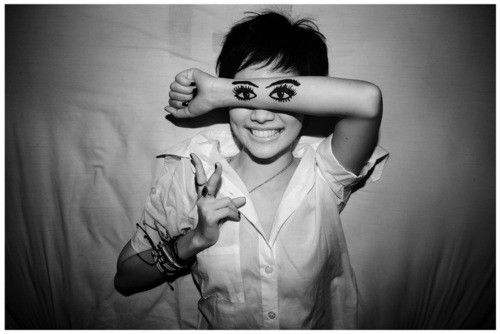Few things are more certain to personality psychologists than the idea that habits are hard to break. Consider the following: personality remains very stable throughout the lifespan, especially from adulthood onwards; early measures of personality (what we call "temperament") predict adult personality with substantial accuracy; and twin studies show that similarity in both normal and clinical personality traits is more influenced by genetic than environmental factors.
Yet, it would be stupid to argue that parenting, schooling, relationships and other life experiences do not affect our typical patterns of behavior, thought and emotion. We come to this world naked, mute and uncoordinated but our interactions with others turn us into sophisticated creatures - activating, and sometimes maximizing, our biological potential. One important question, then, is whether we can deliberately and strategically affect individuals to model their style, preferences, values, and aptitudes. For example, is it possible to boost people's creative or entrepreneurial potential? More specifically, what psychological methods and theories are available to empower individuals to become more imaginative, original, and disruptive thinkers? And would these interventions work with adults (given that the essence of personality is pretty much settled after adolescence)?

Although there is no simple answer to the above questions, there are reasons to be optimistic - especially if one considers the following research evidence:
1) Genetic studies (that control for individual differences in cognitive ability or intelligence) suggests that genes may explain as little as 10% of creative potential. This does not imply that the remaining 90% depends on environmental factors (because we have to account for measurement error and unidentified genetic factors, too). However, the results do suggest that genetic effects on creativity are smaller than on personality or intelligence.
2) Research on trait and state inspiration suggests that broad personality traits (e.g., Openness to Experience, Extraversion, locus of control) account for a considerable amount of variability in people's typical levels of inspiration, but that inspiration is also a motivational state and, as such, it is influenced by external and contextual variables.
3) Research on coaching suggests that creativity can be coached, and the more creative you are, the better you respond to coaching. One of the reasons why this evidence is rarely discussed is that "creativity" is the wrong technical or academic term to identify these studies. If, however, one looks for more specific personality derivatives, reliable sources appear. Most notably, studies on Openness to Experience, a trait that relates to higher levels of intellectual curiosity, aesthetic sensitivity, and receptivity to change (and lower levels of tradition, prejudice, and authoritarianism) show that (a) Openness levels tend to decline with age (we are more creative when we are young, and more conservative when we are old); (b) executive coaching increases Openness levels relative to controls; and (c) open people are more coachable.
4) In any domain of competence, creativity is not just a function of originality, ideation and inspiration, but also expertise. This is commonsense - you may a very creative person but if you don't know how to play the piano, it is unlikely that you will compose a great song or improvise; and how about coming up with a joke in Japanese? Therefore, training expertise, particularly in the area you are passionate about, will increase your chances of being creative in that domain.
In short, creativity is not 100% malleable, but it can be affected by deliberate interventions. People's generic creative potential is more dependent on personality than contextual factors, but domain-specifci creativity depends more on acquired expertise and our inspiration to be creative is both dispositional and situational. In simple terms, if you want to be more creative there's a lot you can do to achieve this - the only difficulty is to achieve the same results with people who don't want to be more creative (once again, it is a case of the rich getting richer and...)
Want to test your creative potential? Take our latest test on entrepreneurship and get instant feedback (takes less than 10-min)


